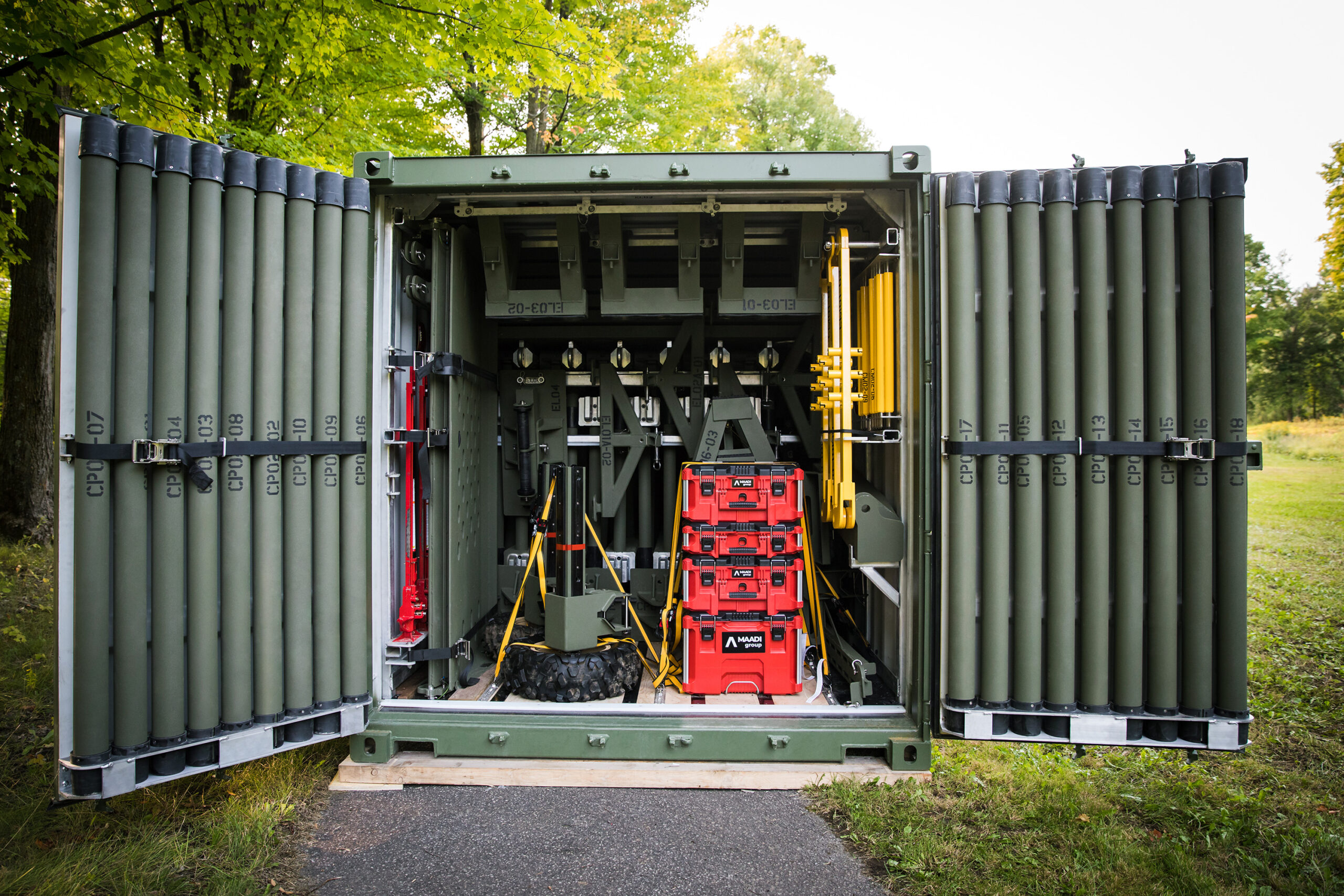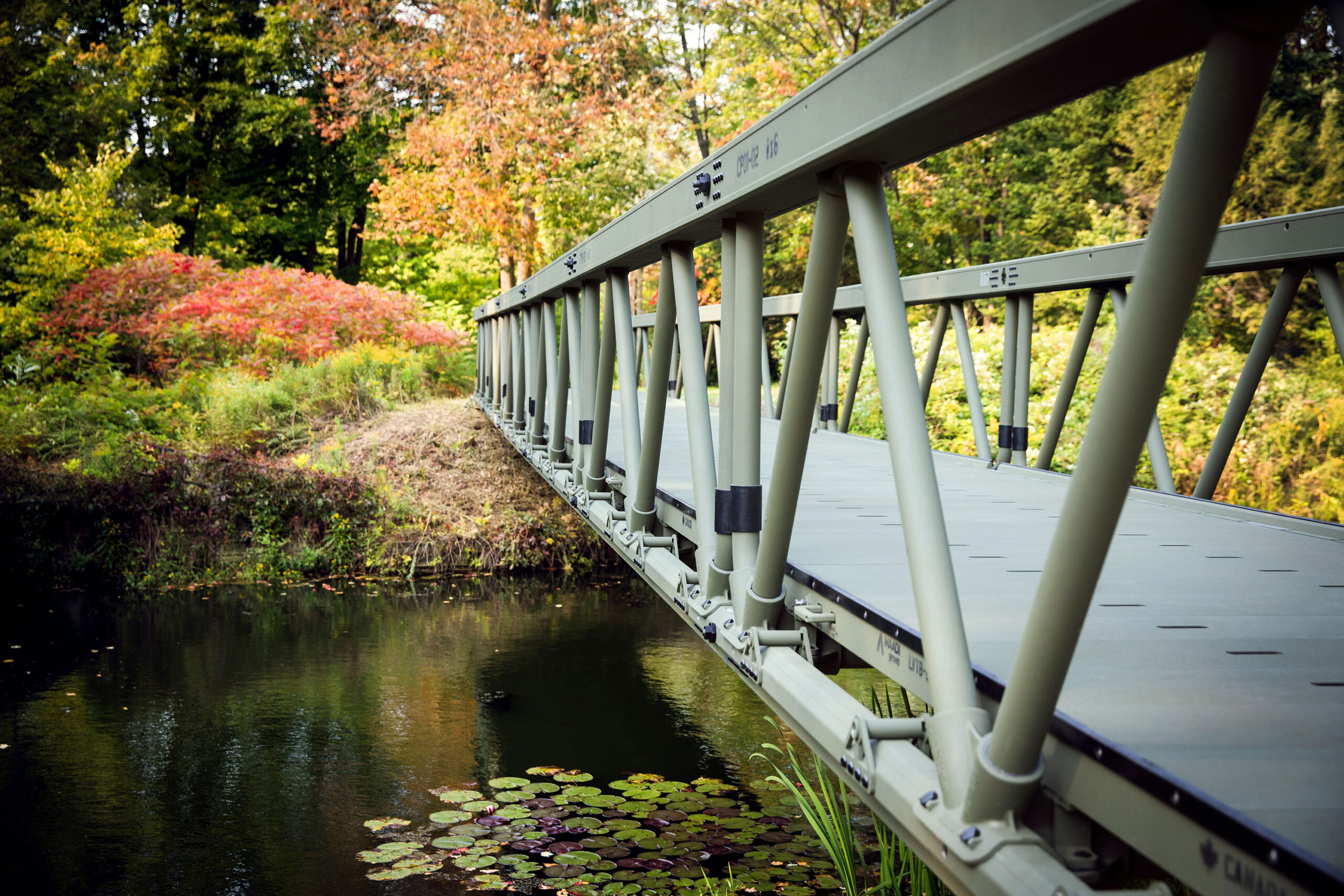MAADI Group was honored with an achievement award at the 2022 ADRIQ innovation awards gala, in light of the firm’s most recent rapid deployment bridge as well as its overall product lineup.
On November 17, Quebec’s association for research and innovation, ADRIQ, held an awards gala to honor Quebec’s most innovative companies. In addition to the innovation awards given out during the event, each of the 9 industrial research groups involved gave out an achievement award. Quebec’s aluminum R&D group, CQRDA, chose MAADI Group for its award. After 7 years of research and development, MAADI Group launched a rapid deployment bridge, designed for civil emergencies.
Gilles Déry, director of the CQRDA, explains the group’s choice. “We chose MAADI because of the firm’s work as a whole, its ability to innovate, its vision and its ability to make commercially viable products. This bridge is a good example. Because it’s so easy to install, it’s a solution for gaining access to hard-to-reach places after natural disasters. It’s also a solution for addressing urgent challenges.” The company was also lauded for working with others to develop its products. “The award also underscores MAADI’s willingness to work with other partners, like universities and scientists.
Alexandre de la Chevrotière, CEO of MAADI Group, says that the idea of a rapid deployment bridge took shape in 2015, after his company was approached by the Canadian Army. The company designed a custom bridge for army vehicles at their request. From there, MAADI revisited the concept, adapting it for emergency situations that require quick responses and flexibility.
Bridge in a box
All the equipment needed to make the bridge is entirely contained in a shipping container. It only takes 10 people half a day to assemble and install the emergency bridge, which has an 80 ft (24 m) span. Once installed, the light vehicle load capacity is 5,070 lb (2,300 kg) and 225 people. This one-of-a-kind bridge in a box is intended for use in civil security, national defense, mining, and forestry.

The bridge, which is mostly made of aluminum, is made with new extrusions using the patented MakeABridge®, moment-resisting connection system. The bridge was tested and validated in cooperation with Montreal’s Ecole de technologie supérieure (ETS) and the University of Waterloo in Ontario, Canada.
Alexandre de la Chevrotière also acknowledges the support of CQRDA, which he began working with in 2002 after being invited to an aluminum trade fair in Lyon, France. Since moving into its new factory in Varennes, Quebec, over a year and a half ago, the company has been using 2 robots in its manufacturing process, including one robot operating in a large cell of 110 ft × 13 ft (33.5 m × 4 m). De la Chevrotière is hopeful that things will pick up again in aluminum processing sector after two years of the pandemic. Across the industry, expectations are still high for the provincial government’s aluminum development strategy (SQDA) to help spur the use of aluminum in Quebec.

